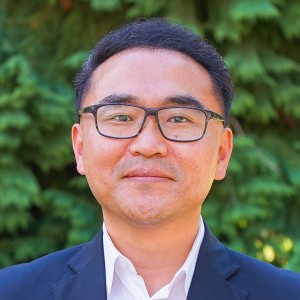The crisis of trust in media and technology is driving us apart, contributing to a culture of contention and disinformation that puts our democracy at risk. Much of the focus has centered on journalism – “fake news,” concerns about bias, a focus on conflict.
But the trust crisis isn’t only a news problem. It permeates almost every institution. Our daily lives are increasingly governed by the tyranny of the algorithm, often appealing to our most visceral emotions. The economic incentives for speaking to those impulses are powerful: Disharmony is profitable.
The Consortium is built to look across all communication fields, with an emphasis on better understanding how technology influences the way we interact with information. We foster a diverse community of scholars and thought leaders to study ways to build trust and apply what we learn, drawing scholars from across disciplines at the University of Florida to bring their best thinking to the task. Our Trust Scholars have come from the fields of journalism, psychology, agriculture, architecture, political science, engineering, education and philosophy.
Our mission: Develop insights backed by research. Identify opportunities for practical application. Get that work into the field so that it can make a difference.
The Consortium Team
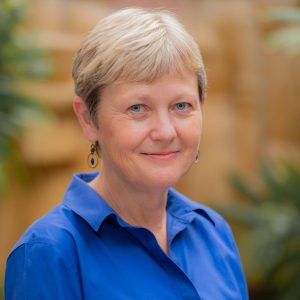
Janet Coats is the Managing Director of the Consortium on Trust in Media and Technology. Her job is to serve as a convener, looking for opportunities for researchers, practitioners and educators to work together. She manages internal and external partnerships as well as daily operations.
Prior to joining the Consortium, Coats was the Executive Director of Innovation and Strategy at the Walter Cronkite School of Journalism and Mass Communication at Arizona State University. She’s been a pioneer in trust and engagement efforts in newsrooms across the country, both as a newsroom leader and as a consultant. For 10 years, she was chief executive officer of Coats2Coats, a consulting company focused on journalism innovation and engagement. Her clients included public radio stations across the nation and journalism collaboration funded by the Corporation for Public Broadcasting.
Coats worked in daily journalism for more than 25 years. She served as Executive Editor of the Sarasota Herald-Tribune and the Tampa Tribune. Her bachelor’s degree in journalism is from the University of Missouri.
Seungahn Nah, Ph.D. is the Research Director of the Consortium on Trust in Media and Technology and the inaugural Dianne Snedaker Chair in Media Trust as well as a CJC professor. Nah’s scholarship centers on the interrelationships among communication, community and democracy with special emphasis on the roles of digital communication technologies, including AI-enabled technologies, and media credibility in community and democratic processes and outcomes. In particular, his research sheds light on community storytelling networks through social and mobile media and AI-communication, news trust and civic engagement across diverse ethnic and racial groups as well as communities at the local, national and global levels.
Prior to coming to UF, Nah was a professor of journalism and media studies at the University of Oregon’s School of Journalism and Communication, where he served as the Inaugural Associate Dean for Graduate Affairs and Research and directed the Digital Media and Civic Engagement Project. Before coming to UO, he was an associate professor of communication and information communication technology (ICT) at the University of Kentucky. Nah received his Ph.D. from the University of Wisconsin-Madison and his master’s and bachelor’s degrees from Yonsei University in Seoul, South Korea.
 Sylvia Chan-Olmsted, Ph.D. is UF’s Director of Media Consumer Research and a professor in the CJC’s department of media production, management and technology. Her research expertise includes digital and mobile media consumption, branding and strategic management in emerging media and communications industries. Her current studies involve AI in media, media brand trust assessment, audience engagement conceptualization/measurement, development and marketing of mobile media content, cross-platform audience behavior and branded content.
Sylvia Chan-Olmsted, Ph.D. is UF’s Director of Media Consumer Research and a professor in the CJC’s department of media production, management and technology. Her research expertise includes digital and mobile media consumption, branding and strategic management in emerging media and communications industries. Her current studies involve AI in media, media brand trust assessment, audience engagement conceptualization/measurement, development and marketing of mobile media content, cross-platform audience behavior and branded content.
Chan-Olmsted has been with the CJC in varying roles since 1997. Before that, she was an assistant professor at Northern Illinois University. Chan-Olmsted earned her Ph.D. in media economics and master’s in telecommunication arts from Michigan State University.
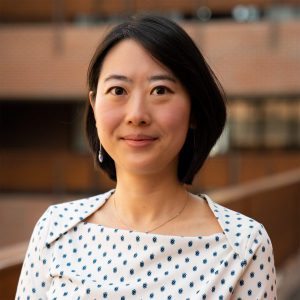 Yang Feng, Ph.D. is an is an associate professor in Artificial Intelligence in the CJC’s department of advertising. Feng’s research focuses on the role of AI as an information delivery agent as well as a powerful research tool. In particular, she examines the impact of algorithm-shaped norms on consumer responses to social media advertising using machine learning approaches in addition to surveys and experiments. She also investigates the use of emerging technologies, including augmented reality, virtual reality and 360-degree videos, to generate interactive advertising messages.
Yang Feng, Ph.D. is an is an associate professor in Artificial Intelligence in the CJC’s department of advertising. Feng’s research focuses on the role of AI as an information delivery agent as well as a powerful research tool. In particular, she examines the impact of algorithm-shaped norms on consumer responses to social media advertising using machine learning approaches in addition to surveys and experiments. She also investigates the use of emerging technologies, including augmented reality, virtual reality and 360-degree videos, to generate interactive advertising messages.
Prior to coming to UF, Feng was an associate professor in advertising at San Diego State University. She earned her Ph.D. in mass communication from Southern Illinois University at Carbondale and her master’s in communication studies from Nanyang Technology University in Singapore.
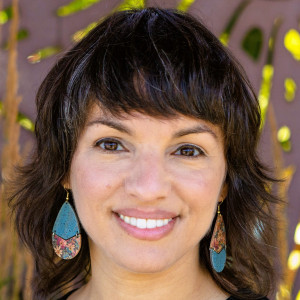 Mónica Guzmán is the inaugural McGurn Fellow for Media Integrity and the Fight Against Disinformation, a position created in collaboration with UF’s College of Journalism and Communications and the Levin College of Law and funded through a $2 million commitment from UF alumni Linda and Ken McGurn. As the McGurn Fellow, Guzmán works with UF researchers to better understand ways to employ techniques described in her book more broadly and to measure their effectiveness. Her work connects with existing research and projects at the CTMT and UFCJC, including the Consortium’s work on authentic journalism language and its impact on unintentional bias, and on how communication functions in democratic processes, in particular what leads people to seek out diverse perspectives.
Mónica Guzmán is the inaugural McGurn Fellow for Media Integrity and the Fight Against Disinformation, a position created in collaboration with UF’s College of Journalism and Communications and the Levin College of Law and funded through a $2 million commitment from UF alumni Linda and Ken McGurn. As the McGurn Fellow, Guzmán works with UF researchers to better understand ways to employ techniques described in her book more broadly and to measure their effectiveness. Her work connects with existing research and projects at the CTMT and UFCJC, including the Consortium’s work on authentic journalism language and its impact on unintentional bias, and on how communication functions in democratic processes, in particular what leads people to seek out diverse perspectives.
Guzmán is Senior Fellow for Public Practice at Braver Angels, the nation’s largest cross-partisan grassroots organization working to depolarize America; founder and CEO of Reclaim Curiosity, an organization working to build a more curious world; cofounder of the award-winning Seattle newsletter The Evergrey; and advisor for Starts With Us and the Generations Over Dinner project.
She was a 2019 fellow at the Henry M. Jackson Foundation, where she studied social and political division, and a 2016 fellow at the Nieman Foundation for Journalism at Harvard University, where she researched how journalists can rethink their roles to better meet the needs of a participatory public.
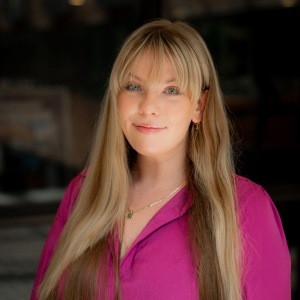 Kendall Moe is the Senior Project Manager for Authentically at the Consortium on Trust in Media and Technology. Her work focuses on conducting and managing research for CTMT’s centerpiece project, Authentically. Moe is deeply interested in the intersection of authenticity, intentionality and trust in language.
Kendall Moe is the Senior Project Manager for Authentically at the Consortium on Trust in Media and Technology. Her work focuses on conducting and managing research for CTMT’s centerpiece project, Authentically. Moe is deeply interested in the intersection of authenticity, intentionality and trust in language.
A Double Gator, she received a bachelor’s degree in linguistics in 2020 and a master’s in special education with a concentration in dyslexia in 2023, both from the University of Florida. She also has a keen interest in media literacy and what that constitutes in an ever-changing digital landscape. Moe was born and raised in West Palm Beach.
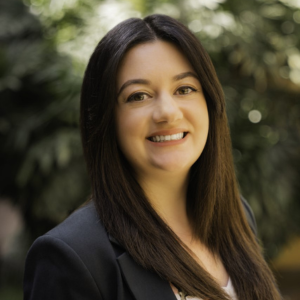 Brittany Shaughnessy is a CTMT Trust Scholar, a third-year public relations doctoral student and a Graduate Research Assistant in University of Florida’s College of Journalism and Communications. Her specialization is in political communication, with her research aiming to answer the following question: Why do people dislike each other along political lines, and what can we do to help mitigate the divide? More broadly, she is interested in the impact of partisan media on political outcomes.
Brittany Shaughnessy is a CTMT Trust Scholar, a third-year public relations doctoral student and a Graduate Research Assistant in University of Florida’s College of Journalism and Communications. Her specialization is in political communication, with her research aiming to answer the following question: Why do people dislike each other along political lines, and what can we do to help mitigate the divide? More broadly, she is interested in the impact of partisan media on political outcomes.
Prior to coming to UF, Shaughnessy received her bachelor’s degree in communication with a concentration in broadcast journalism and a minor in political science from Coastal Carolina University in 2019. She received her master’s in communication from Virginia Tech University in 2021. She is a native of Middletown, New York.
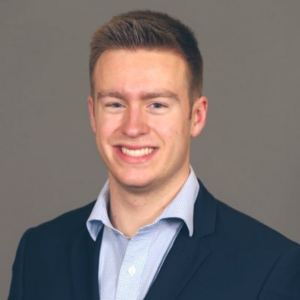 Caleb Wiegandt is the Communications Coordinator and a Research Assistant for the Consortium on Trust in Media and Technology and a University of Florida undergraduate senior studying journalism and artificial intelligence. His passion lies in working toward algorithmic transparency and fighting misinformation on social media.
Caleb Wiegandt is the Communications Coordinator and a Research Assistant for the Consortium on Trust in Media and Technology and a University of Florida undergraduate senior studying journalism and artificial intelligence. His passion lies in working toward algorithmic transparency and fighting misinformation on social media.
Prior to joining the Consortium, Wiegandt worked as a reporter for various outlets, including the Louisville Courier-Journal, The Gainesville Sun, WUFT News, The Independent Florida Alligator and WRUF. He is a native of southwest Louisville, Kentucky.
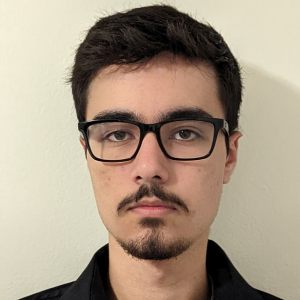 Tomas Rivera is the Lead Software Developer for Authentically at the Consortium on Trust in Media and Technology and a University of Florida undergraduate junior studying mathematics and computer science. He leads full-stack development of Authentically’s application with a primary focus on backend, database and model development. He also manages deployment and development maintenance operations for the application.
Tomas Rivera is the Lead Software Developer for Authentically at the Consortium on Trust in Media and Technology and a University of Florida undergraduate junior studying mathematics and computer science. He leads full-stack development of Authentically’s application with a primary focus on backend, database and model development. He also manages deployment and development maintenance operations for the application.
A native of Tampa, Rivera’s research interests include machine learning, statistics and computer science education.
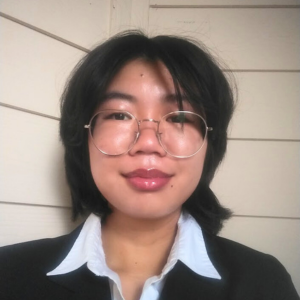 Emily Yao is a developer for Authentically at the Consortium on Trust in Media and Technology and a University of Florida undergraduate junior studying statistics. She aids the development of Authentically’s application with a primary focus on statistical analysis for machine learning methods.
Emily Yao is a developer for Authentically at the Consortium on Trust in Media and Technology and a University of Florida undergraduate junior studying statistics. She aids the development of Authentically’s application with a primary focus on statistical analysis for machine learning methods.
A Tampa native, Yao has also worked as a data analyst with The Agency at UF. Her research interests include mathematics, data science, statistics and machine learning.

